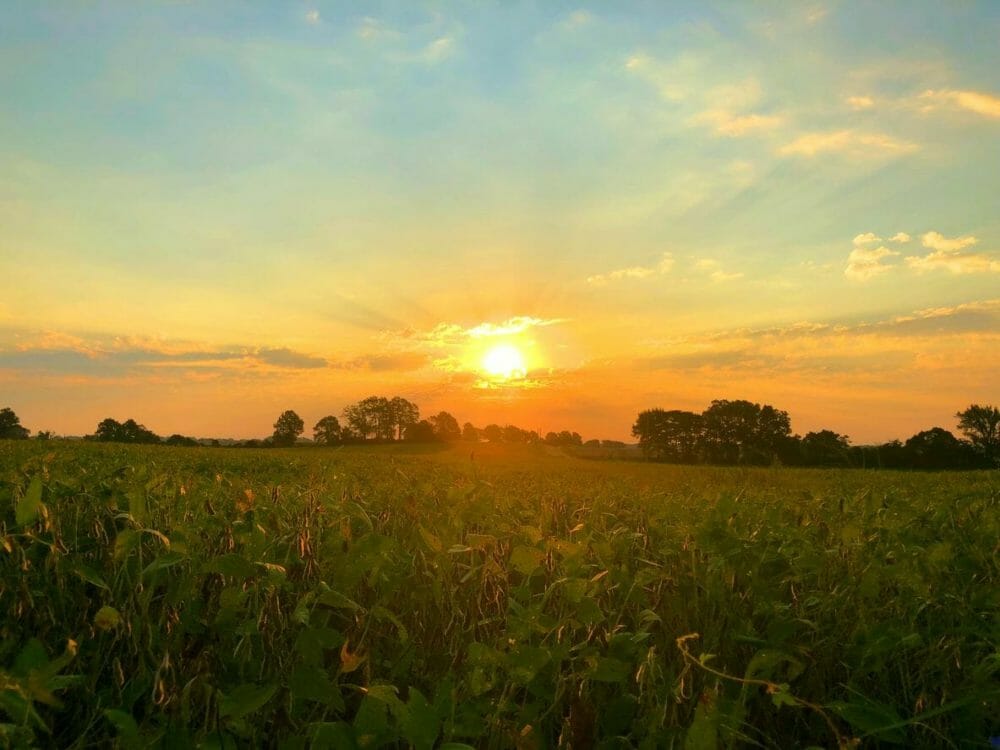Plant-based food products are often touted for their environmental benefits over those involving animal agriculture, but they’re certainly not perfect. Growing and processing crops into food products still requires a lot of natural resources including water, fertilizer, pesticides, and energy.
Benson Hill, the crop genetics startup based out of St Louis, Missouri, is working to improve the sustainability credentials of the leading source of plant-based protein: soy. It has developed a variety of the bean with up to 50% more protein than current varieties in the hope of tapping into the plant-based alternatives market; plant-based meat alone is projected to be worth $140 billion in 10 years.
The company developed the variety by using traditional breeding practices — no gene editing for this product — and will start growing it with contract farmers in 2021. The variety was initially discovered by eMerge Genetics, which Benson Hill acquired in March 2019.
Benson Hill will also move from its regular stomping ground of seed genetics and research to actually process the bean and sell soybean protein concentrate to food companies. Soybean protein concentrate is a key ingredient for the plant-based meat and dairy industry; for instance, it’s the number one ingredient in the Impossible Burger.
Impossible Foods just raised a mega $500m round to combat a coronavirus-related downturn; read more here.
There are three main methods for extracting soybean protein concentrate involving an alcohol wash, an acid wash, and a water wash process. All are expensive and ecologically unfriendly, said Matt Crisp, CEO at Benson Hill.
“Soy protein concentrate is extremely unsustainable to process, using secondary processing after the initial soybean crushing, which uses tons of water and energy,” Crisp told AFN. “Our variety disintermediates some of that processing, needing only to go through a regular crush to get the protein concentration equivalent to soy protein concentrate.”
The Ultra High Protein soybean variety is also more sustainable at the farm level, Crisp argued, as it will produce more protein per acre than other soybean crops. This means less land and fewer inputs such as pesticides, fertilizers, and manpower to grow and harvest.
While plant-based meat and dairy companies are core customer targets for the new variety, it will also be a key ingredient in premium feed for animal agriculture, reducing the environmental footprint of that segment of livestock farming.
Benson Hill also hopes to put money in the pockets of farmers; the company will contract with them later this year to grow during 2021 and purchase their harvest from them at premium rates. It will then contract with soy crushing facilities to produce the soy protein concentrate and sell that on as an ingredient to food companies.
“Impossible Foods is the best example of a user of this type of soy, but it’s the kind of product that food system innovators will be interested in across the board,” Crisp said.
Explaining Benson Hill’s decision to move down the supply chain and get into selling ingredients, Crisp said that the company wants to to create a “closed-loop model” to tap into the “huge” amount of value created at the ingredient level.
“I wouldn’t say we’re planning to become an ingredients company now, but we’re intending to innovate through the value chain. Seed is the vessel that allows us to create this differentiated product, but the real value we can capture and share with the grower and deliver to food companies, must be at the ingredient level,” he added.
“We need to establish a supply chain for this new variety; if you just sell the seed to a grower, it could get mixed in with everything else and they’re not creating value for themselves. By creating a closed-loop production system, we can ensure the logistics are there to deliver the product to people who care.”
Benson Hill has built out an operations team specifically to work with farmers on this initiative. It’s also using its technology platform to work out which regions of the US will make most sense for growing the variety in terms of climate, soil type, and so on based on its phenotype.
The startup, which was founded in 2012, counts GV (previously Google Ventures) as an investor alongside a bevvy of high profile agri-foodtech investors. It has raised nearly $100 million in funding to date, most recently closing a $60 million Series C in late 2018.
Early in 2019, it acquired the assets of Schillinger Genetics, also known as eMerge Genetics, which had developed high-yielding, high-protein non-GMO soybean varieties.
Check out more coverage of Benson Hill on AFN here.





